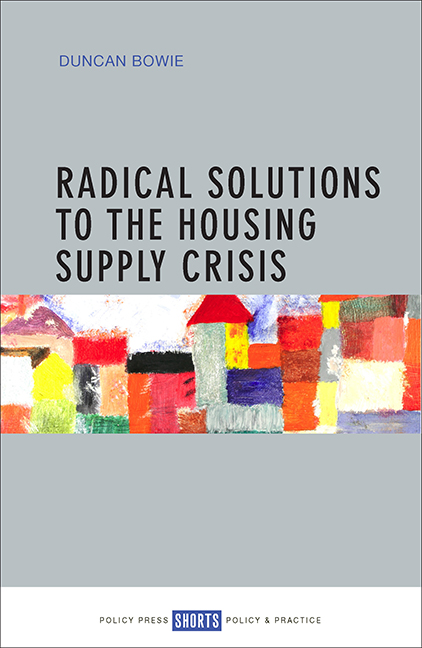5 - Affordable by whom?
Published online by Cambridge University Press: 05 April 2022
Summary
Chapter Four focused on the overall shortage of homes, discussed some of the factors impacting on the production of new homes and set out criteria for deciding where new homes should be built. However, it has been argued in previous chapters that increasing overall supply through a new-build programme only has a relatively marginal effect on the affordability of the overall housing supply. The key challenge is therefore how to ensure that both new and the existing housing supply is affordable by a much wider range of households. With house prices and rents in most parts of the country increasing much faster than household incomes, it is not surprising that the proportion of household incomes being spent on housing has increased dramatically. Housing costs are now a significant component of inequality both between households and between different parts of the UK. Ownership of housing is a critical component in household wealth, and as property values increase, the differential between homeowners (especially those who have paid off their mortgages) and renters becomes more acute (Atkinson, 2015).
Part of the difficulty in having a sensible debate about affordable housing is the increasing abuse of the term ‘affordable’. Governments of recent years have tended to use the term ‘affordable’ as synonymous with ‘sub-market’. There was therefore an assumption that affordable housing needed some form of subsidy to be sub-market. However, as house prices have increased far more rapidly than incomes, access to market housing has become far more restricted, and in many locations, property prices and rents have to be significantly below market levels to be accessible to households on average incomes. There are, of course, significant area variations, with average house price to average income ratios being highest in London, the South East and South West. Governments have increasingly tried to find ways of making unaffordable housing more affordable without any direct form of government subsidy.
In the National planning policy framework (DCLG, 2012) published by the government in March 2012, the definition of ‘affordable housing’ for planning purposes was amended to include the new category of ‘affordable rented’ homes, now part-funded by the government through the Homes and Communities Agency (and in London, through the mayor of London).
- Type
- Chapter
- Information
- Radical Solutions to the Housing Supply Crisis , pp. 85 - 92Publisher: Bristol University PressPrint publication year: 2017



